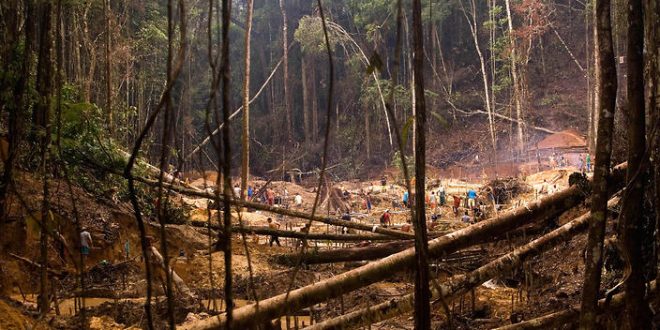Extraordinary new aerial photos show a contemporary uncontacted tribal community estimated to be home to 100 people in the Amazon.
The village is in the Yanomami indigenous territory in the north of Brazil, close to the Venezuelan border. About 22,000 Yanomami live on the Brazilian side of the border, and at least three groups of them have no contact with outsiders.
“The place where the uncontacted Indians live, fish, hunt and plant must be protected,” says Davi Kopenawa, an activist and shaman who is part of another Yanomami group. “The whole world must know that they are there in the forest and that the authorities must respect their right to live there.”
The Moxihatetema, along with several other Yanonami groups, live in a large reservation that straddles the border between Brazil and Venezuela. But since its creation in 1992, the Yanomami reserve has suffered from incursions by Venezuelan and Brazilian settlers involved in illegal gold mining.
The Yanomami tribe has been fighting against the miners for decades. In an interview published in 1991, during his fight to get the Yanomami territory recognised, Davi Kopenawa described the impact the mining companies have had on the life of the tribe: “The miners invaded our reserve and came to our communities feigning friendship; they lied to us, they tricked us Indians, and we were taken in. Then their numbers grew; many more arrived, and they began bringing in machinery that polluted the river. The pollution killed the fish and the shrimp, everything that lived in our rivers.”
In March 2016, new data showed alarming rates of mercury poisoning amongst the Yanomami and Yekuana tribes in the Amazon rainforest, finding that over 90% of Indians in one region are severely affected.
Survival International opposes attempts by outsiders to contact them: “It’s always fatal and initiating contact must be their choice alone. Those who enter uncontacted tribes’ territories deny them that choice,” they write. But that choice is increasingly driven by fear for their survival, as the Acre Indians tribe that contacted Funai in 2014 explained that “violent attacks” by outsiders had driven them from the forest. An interpreter for the tribe reported: “The majority of old people were massacred by non-Indians in Peru, who shot at them with firearms and set fire to the houses of the uncontacted.”
Anthropologist Robert Walker told the BBC at the time: “Everywhere you look, there are these pressures from mining, logging, narcotrafficking and other external threats. My worry is that if we have this ‘leave-them-alone’ strategy, at the end of the day the external threats will win. People will just go extinct.”
Agencies/Canadajournal
 Canada Journal – News of the World Articles and videos to bring you the biggest Canadian news stories from across the country every day
Canada Journal – News of the World Articles and videos to bring you the biggest Canadian news stories from across the country every day




